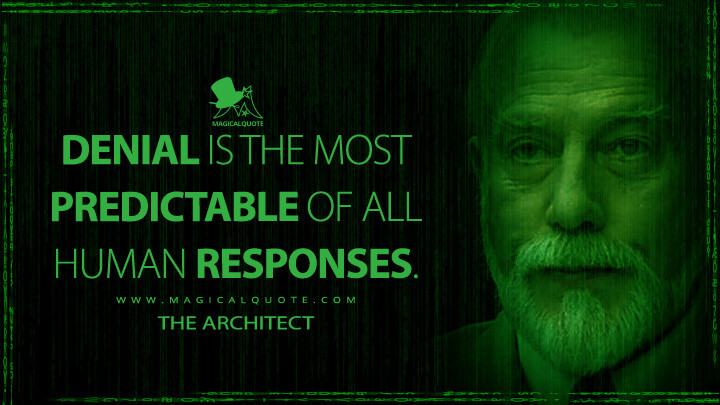Matrix: The Matrix represents a controlled, simulated reality where humans are kept in a state of blissful ignorance. Those who are freed from it must confront a harsh, often brutal external reality, which many find too difficult to accept.
Gaza: The situation in Gaza can be seen as a form of control where the blockade and restrictions create a kind of "Matrix" - an environment where normal life is heavily constrained, leading to a form of existential confinement. The physical and political realities are often so stark that they parallel the harsh awakening from the Matrix.
Matrix: The Architect's comment about denial and the choice not to free those beyond a certain age due to their inability to accept the truth mirrors the selective nature of Morpheus's red pill/blue pill offer. It suggests that once people reach a certain maturity or have lived too long within the system, the shock of truth can be too much to handle.
Gaza: Similar dynamics can be observed where long-term conflict, trauma, and propaganda can lead to a form of collective denial or acceptance of the status quo. The daily reality for many in Gaza involves coping mechanisms that might resemble denial, where accepting the full extent of their situation could be psychologically overwhelming or lead to despair.
Matrix: Characters like Neo represent those who resist the system, seeking to awaken others to the truth, even at great personal risk. This awakening involves a fight against the control mechanisms of the Matrix.
Gaza: Resistance movements, whether through political activism, journalism, or direct action, can be seen as efforts to "awaken" global awareness to the realities in Gaza, challenging narratives and control structures. However, the complexity of the conflict means that what one side sees as resistance, another might view as aggression or terrorism.
While these parallels are not exact and the contexts differ significantly, both narratives explore how humans navigate or are trapped by systems of control, the psychological impact of living within or confronting these systems, and the struggle between illusion and reality. This comparison underscores the universal themes of freedom, truth, and human resilience or fragility when facing overwhelming odds.
